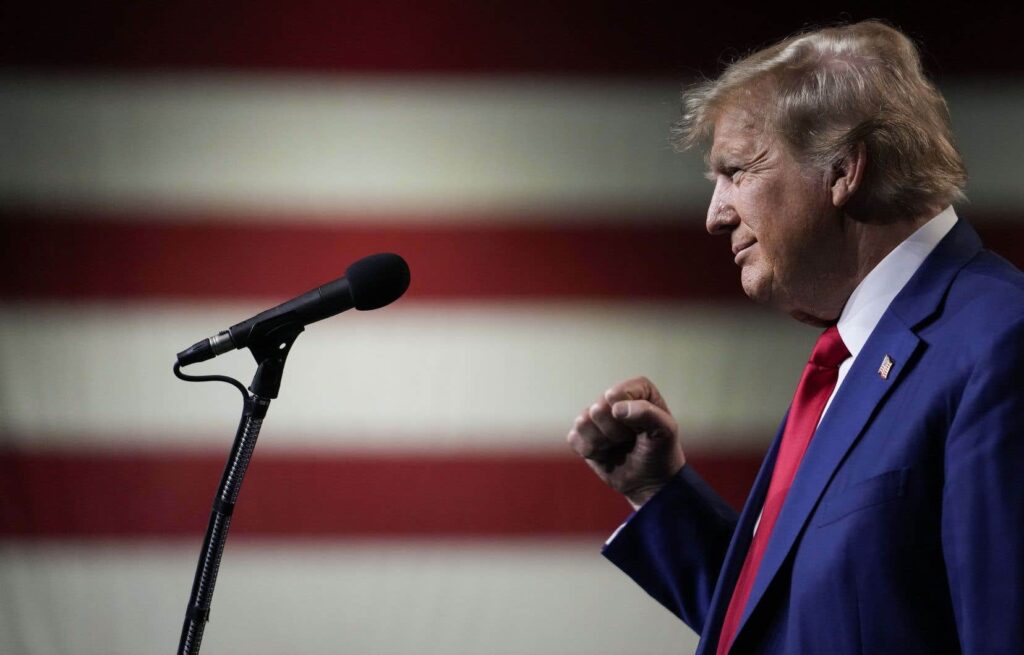Special prosecutor Jack Smith urged a federal appeals court Saturday to reject former President Donald Trump’s claims that he is immune from prosecution, saying the suggestion that he cannot be held responsible for crimes committed during his mandate “threaten the democratic and constitutional foundations” of the country.
Mr. Smith’s team’s brief was submitted ahead of next month’s debates on the legally untested question of whether a former president can be prosecuted for acts committed while in the White House.
Although the case is currently being heard by the U.S. Court of Appeals for the District of Columbia Circuit, it will likely be brought back to the Supreme Court. The nation’s highest court earlier this month rejected prosecutors’ request for a quick ruling in their favor, ruling that Trump could be forced to stand trial on charges that he plotted to overturn the results of the 2020 elections.
The outcome of the dispute is crucial for both sides, especially since the case has been effectively put on hold while Trump asserts his immunity claims before the appeals court.
Prosecutors hope a quick ruling rejecting those arguments will revive the case and keep it on track for trial, currently scheduled for March 4, in federal court in Washington. However, Trump’s lawyers could benefit from a lengthy appeals process that could significantly delay the case and potentially push it beyond the November election.
Trump’s lawyers argue that the appeals court should order the case dismissed, arguing that as a former president, he is exempt from prosecution for actions falling within his official duties as president.
Mr. Smith’s team argued that no such immunity existed in the Constitution or in case law and that, in any case, the actions taken by Trump in his unsuccessful effort to cling to power did not part of the official responsibilities of a president.
Four counts charge Trump with conspiring to disrupt the certification of electoral votes in Congress on January 6, 2021, when rioters motivated by his lies about the election results stormed the U.S. Capitol in a violent clash with the police. The indictment alleges that he participated in a scheme to build lists of fake voters in battleground states that would falsely attest that Trump had won those states and encouraged then-Vice President , Mike Pence, to thwart the vote count.
These actions, prosecutors wrote, were not within the president’s official duties and were intended solely to help him win re-election.
“A president who illegally seeks to retain power through criminal means unchecked by possible criminal prosecution could jeopardize both the presidency itself and the very foundations of our democratic system of government officials by using fraudulent means to thwart the transfer of power and remain in office,” Mr. Smith’s team wrote.
In their filing, prosecutors also said that while the presidency plays a “vital role in our constitutional system,” the principle of accountability for wrongdoing also plays an important role.
“Rather than vindicating our constitutional framework, the broad claim of immunity for the accused threatens to authorize presidents to commit crimes to remain in office,” they wrote. The Founders did not intend and would never have tolerated such an outcome. »
Charges in several cases
While Trump’s lawyers argued the indictment threatened “the very foundation of our Republic,” prosecutors say the defense took things the wrong way.
“It is the defendant’s assertion that he cannot be held accountable for accusations that he engaged in an unprecedented effort to retain power through criminal means, despite his defeat in the election, that threatens the democratic and constitutional foundations of our Republic,” they declared.
A three-judge panel is scheduled to hear arguments on January 9. Two of the judges, J. Michelle Childs and Florence Pan, were appointed by President Joe Biden. The third, Karen LeCraft Henderson, was appointed to the bench by former President George HW Bush.
U.S. District Court Judge Tanya Chutkan previously rejected arguments for immunity, saying the office of the president does not confer a “get out of jail free card.” Trump’s lawyers later appealed the decision, prompting Mr. Smith to seek to bypass the court and seek an expedited ruling from the Supreme Court.
Last week, judges rejected the request without explanation, leaving the case before the appeals court.
Trump faces three other criminal charges. He is accused in Florida of illegally possessing classified materials at his Mar-a-Lago estate and faces lawsuits in Georgia that accuse him of trying to overturn that state’s 2020 presidential election, as well as than a case in New York that accuses him of falsifying business records in connection with a hush-money payment to a porn actress.

